On 11 June, 2024, an interesting case was brought before the Court of Justice of the European Union which is highly relevant from the aspect of EU institutional translation and corrigenda.
The request for preliminary ruling in case C-416/24 addresses the following fundamental issues:
-
the correction of the official language versions of EU regulations in case of mistranslation,
-
the question of retroactive effect of the corrected version, from the entry into force of the original regulation,
-
the equivalence of the language versions of an EU regulation,
-
legitimate expectations of natural and legal persons in relation to language versions of EU acts published in the Official Journal.
The main question of this case is:
“Does the adoption of a regulation correcting the official language version of an EU regulation have the effect of retroactively applying the corrected version, from the entry into force of the original regulation, or does it produce effects only for the future, after the entry into force of the correcting regulation?”
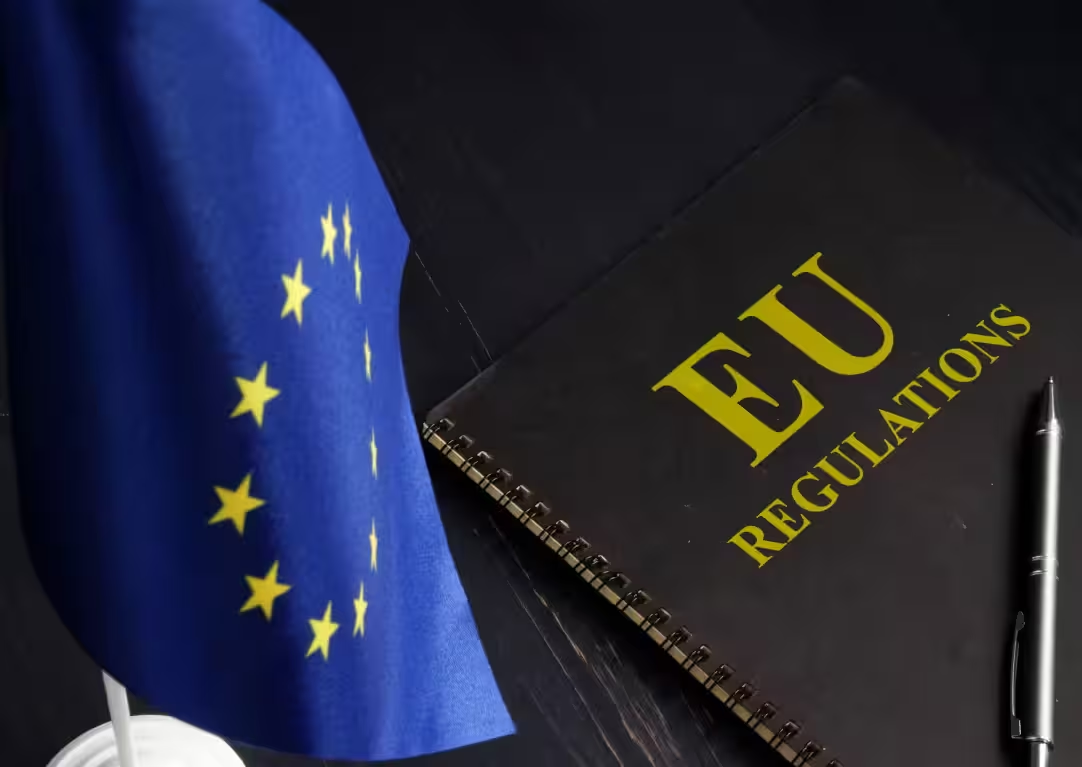
The questions addressed in the request for a preliminary ruling are available on EUR-Lex here: https://eur-lex.europa.eu/legal-content/EN/TXT/?uri=CELEX:62024CN0416
This topic is all the more interesting for us because at Juremy we also examined the questions of corrigenda and their impact on EU institutional translation in the framework of the development of our search tool.
Our article “Studying the need to optimize search for amendments and corrigenda in EU institutional translation” was presented at the Translating and the Computer (TC45) conference organized by AsLing in Luxembourg, and it is published here.
The facts of the case
Under the Government Emergency Ordinance No 130/2020 on certain measures to provide financial support through non-repayable external funds, in the context of inter alia the COVID-19 crisis, the appellant On Air Media Professionals SRL received a micro-grant of RON 9679 from the Romanian Government, granted in the form of non-repayable external funds.
Subsequently, by decision of 8 November 2022, the Agency for Small and Medium-sized Enterprises ordered the recovery of the State aid in the amount of RON 9679 and interest in the amount of RON 681.67, on the ground that it considered that, on the date that aid was granted, the appellant did not meet the eligibility conditions.
In summary, Romania has granted aid, on the basis of the incorrect Romanian language version of Regulation (EU) No 651/2014 (‘the GBER’), to undertakings which should not have received it based on all the other language versions of the same Regulation.
The mistranslation
Article 2 of the GBER, entitled ‘Definitions’, provides in the first sentence of paragraph 18(a):
18. “undertaking in difficulty” means an undertaking in respect of which at least one of the following circumstances occurs:
(a) In the case of a limited liability company (other than [a small or medium-size enterprise (SME]) that has been in existence for less than three years […] …’.
In the case of that provision, the words ‘in existence for less than three years’ were translated, in the Romanian language version as ‘in existence for at least three years .’
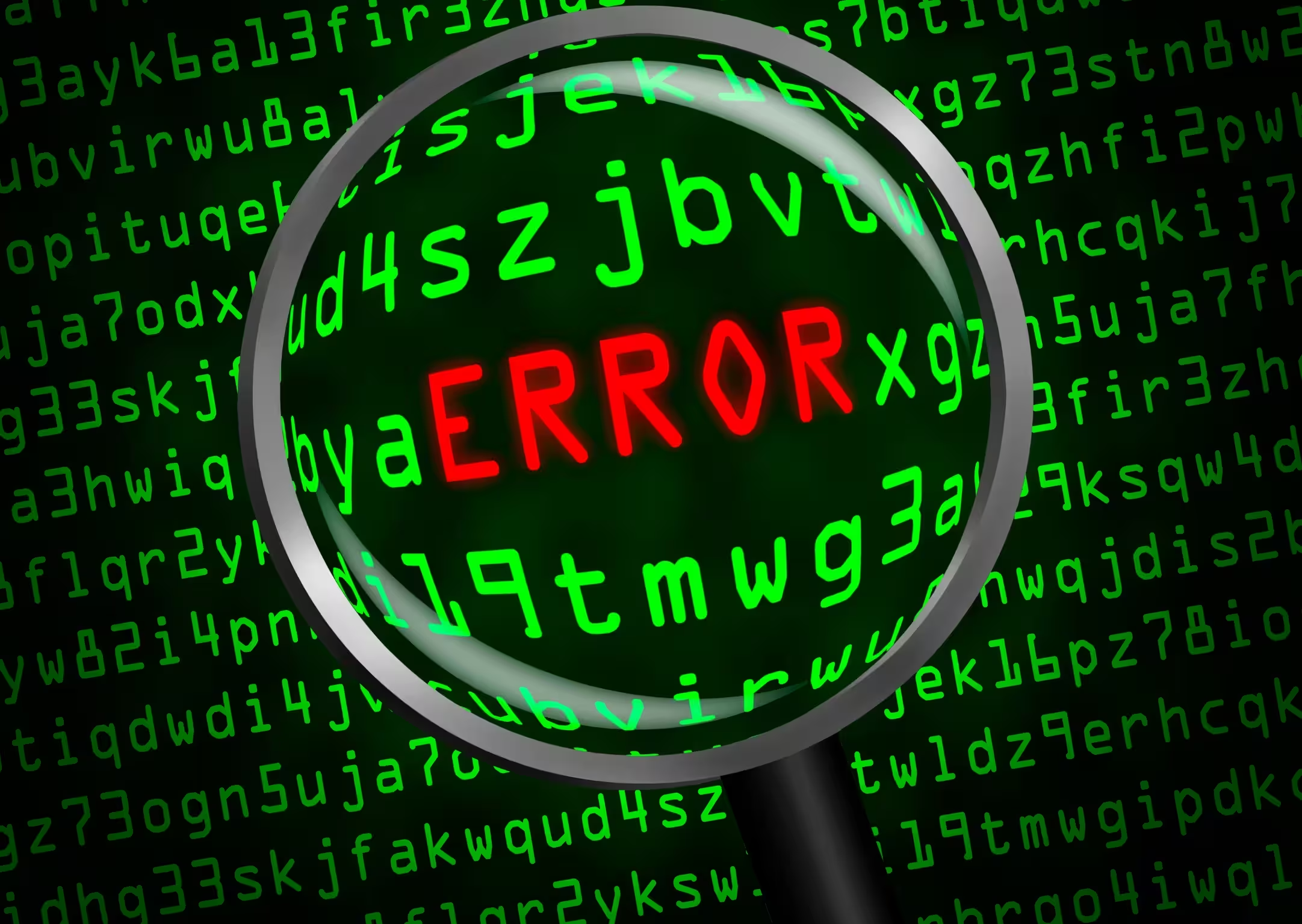
In March 2021, more than three months after the contract was signed, an amendment of the initial Romanian language version was introduced by the correcting Regulation (EU) 2021/452.
Recitals 1 and 2 of Regulation (EU) 2021/452 (‘the correcting regulation’) state:
‘(1) The Romanian language version of the [GBER] contains errors in the first sentence of Article 2(18)(a) and in the first sentence of Article 2(18)(b) that alter the meaning of the provisions.
(2) The Romanian language version of the [GBER] should therefore be corrected accordingly. The other language versions are not affected.’
Article 1 of that regulation provides:
‘The [GBER] is corrected to read as follows:
1. The first sentence of Article 2(18)(a) shall be replaced by the following wording: “In the case of a limited liability company (other than an SME that has been in existence for less than three years …”
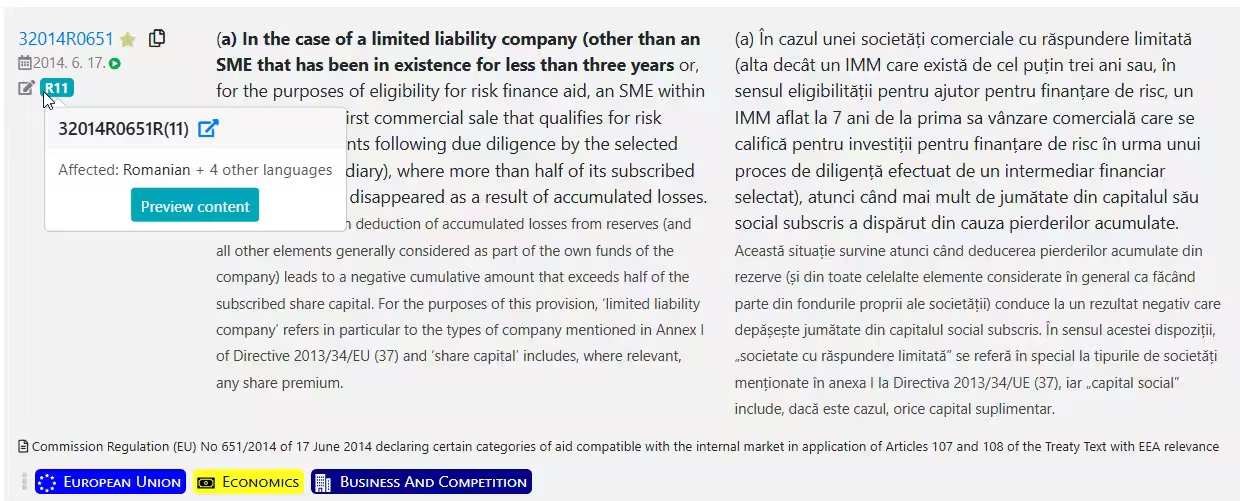
The appellant complained that the court of first instance applied that provision retroactively in the recovery decisions. It claimed that it met all the conditions laid down for obtaining micro-grants and, in particular, that they did not have the characteristics of undertakings in difficulty, within the meaning of Article 2(18) of the GBER.
The opinion of the Advocate General
On 22 May 2025, the opinion of the Advocate General in the present case was published in the Official Journal of the EU: https://eur-lex.europa.eu/legal-content/EN/TXT/HTML/?uri=CELEX:62024CC0416
In his opinion, Maciej Szpunar examined the following question, which is crucial in respect of multilingualism and the legal effect of corrigenda:
“What is the fate of aid measures granted by a Member State, on the basis of a language version of a European Commission regulation which is incorrect but has been duly published in the Official Journal of the European Union?”
About the retroactive effect of the correction
By its first question, the referring court asks in essence whether the correcting regulation must be interpreted as applying retroactively from the date of entry into force of the GBER.
An important aspect of this case is that the translation error led to an error in the substance of the provision in question, but that error does not at first sight lead to a difficulty in interpreting the text, since the wording of the latter, although incorrect, is clear (“for at least three years” vs. “for less than three years”).
The Court has to determine whether the correction of the mistranslated text must be regarded as having effects only for the future, following its entry into force, or whether the Romanian version of the GBER must be read in its corrected version from the entry into force of the GBER (retroactive effect).
As the Advocate General points out, the case-law of the Court accepts that the point in time when an act enters into force does not necessarily coincide with the point in time when it takes effect, since in certain circumstances that act may have retroactive effect. Szpunar argues that this must be so in the present case, for two reasons:
-
the correcting regulation serves a purpose of general interest, namely consistency of the various language versions of an EU legislative act, which justifies interpreting it as having retroactive effects.
-
the retroactive effect of the correcting regulation is clear from its purpose, since it is specifically designed to make all the language versions of the GBER correspond by removing a translation error from the Romanian version” (see point 59 of the opinion.)
Therefore the Advocate General takes the view that the answer to the first question should be that the correcting regulation must be interpreted as having a retroactive effect.

About the principles of legal certainty and protection of legitimate expectations
The second and third questions raise the issue of whether it is possible, both for the Member State and for individuals, to rely on the correcting regulation, in other words in the present case to recover the aid granted on the basis of the incorrect language version of the GBER.
First, it is apparent from it that the GBER, in its Romanian version containing a translation error, was published in the Official Journal and was therefore authentic, in the same way as all the other language versions in the other Member States.
On the other hand, in the view of the Advocate General, the alteration brought about by the correcting regulation, although it has retroactive effects, cannot, in that situation, be enforced against natural and legal persons who took as their basis the version of the GBER that was incorrect but was published in the Official Journal and was authentic (points 69-70.).
In those circumstances, only the wording of the provision in the Romanian version, published in the Official Journal before it was corrected by the correcting regulation, should be enforced against natural and legal persons of that Member State.
It follows that the correcting regulation should not be enforceable, before its entry into force, against natural and legal persons of the Member State who have benefited from aid measures granted on the basis of the incorrect language version of the GBER.
However, in the case of a Member State which has applied an incorrect provision of an EU legislative act, its status confers on it a certain degree of knowledge of the legislation, indicating to it that a clear provision may however be incorrect in its language version in the light of its context and purpose. On the other hand, such knowledge cannot be assumed in the case of individuals.

The principle of legal certainty
The Treaties provide that the texts drawn up in each of the official languages are equally authentic, while Regulation No 1 provides that regulations are to be drafted in the official languages. Moreover, as the Court has consistently held, all the language versions of an EU act must, in principle, be recognized as having the same value.
That principle of the equivalence of the language versions, in connection with legal certainty, therefore assumes that proper publication of a regulation for a Member State whose language is an official language of the European Union, must include the publication of that act, in that language, in the Official Journal and that also such proper publication is a pre-condition for the act concerned to be enforceable against natural and legal persons (point 50. of the opinion).
The principle of protection of legitimate expectations
Although regarding the State aid scheme the case-law is restrictive in relation to the protection of legitimate expectations, the Court accepts at the same time that a recipient of illegally granted aid is not precluded from relying on exceptional circumstances on the basis of which it had legitimately assumed the aid to be lawful and thus opposing the recovery of that aid.
The Advocate General suggests that the recipients of the state aid in Romania may rely on exceptional circumstances on the basis of which they had legitimately assumed the aid to be lawful, so they have the legal basis to oppose the recovery of the received aid.
The arguments supporting this are the following:
-
The Romanian version of the GBER containing a material error was published in the Official Journal, and so it was authentic in that Member State and could therefore give rise to a legitimate expectation on the part of beneficiaries of the aid.
-
The Romanian provisions on the basis of which the aid measures were granted, reproduce not only the exact wording of the GBER in its incorrect Romanian version, but were also approved by the Commission*.*
-
The responsibility for the proper publication of texts in the Official Journal lies with the EU institutions. This means that the error on the basis of which the aid was paid to the beneficiaries was not only attributable to the Romanian authorities, but also to the Commission. The EU administration therefore gave rise to justified expectations that the aid measures granted were lawful.
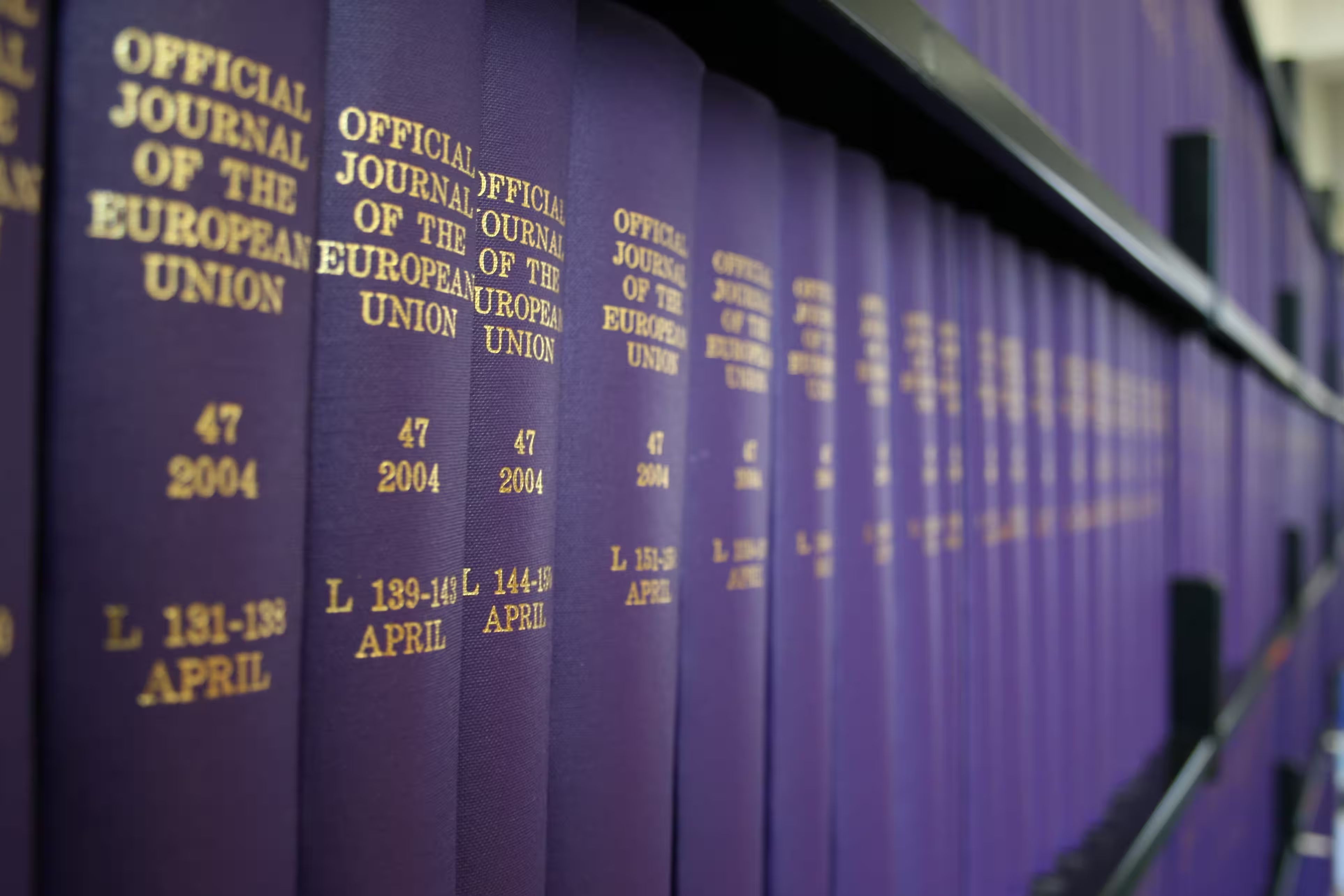
Proposed answers to the preliminary questions
In the light of the above, the Advocate General proposes the following answers to the questions raised in the preliminary proceedings:
-
“The Commission Regulation […] correcting the Romanian language version of the GBER must be interpreted as having a retroactive effect, and the error in the Romanian language version of the GBER to which it relates must be regarded as being corrected from the entry into force of the latter.
-
The correcting regulation cannot be enforced against individuals who, before its entry into force, benefited from aid measures granted by Romania on the basis of the incorrect Romanian language version of the GBER, so that Romania cannot rely on it in order to require the recovery of that aid.”
Our conclusions
Which further conclusions can be drawn from the above case - focusing on the aspects of EU institutional translation?
-
First of all, it highlights the importance of correct and accurate translations, and that multilingualism is a fundamental pillar of the functioning of the EU.
-
The multilingual versions of EU legal acts published in the Official Journal serve as a basis for legitimate expectations that the language versions are correctly translated.
-
The opinion emphasizes the importance of the equivalence of the language versions of an EU act.
-
Furthermore, it demonstrates the serious legal effects which even one mistranslated word can have when published in EU legislative texts.
-
In the present case, one seemingly obvious translation error led to serious financial and legal consequences because the aids in questions might have to be granted to both categories of beneficiaries even though the aid was intended to only one category of them.
-
The language versions published in the OJ are authentic and though the correcting regulation has retroactive effect, it cannot be enforced against natural and legal persons who took the authentic version as their basis.
-
Furthermore, natural or legal persons cannot be required to check the other language versions of a clearly worded provision, and to ascertain its purpose and the context in which it appears.
-
It reinforces the principle that corrigenda have retroactive effect to the publication of the original act.
-
That’s why it is crucial to be aware of corrected versions - even if it exists only in one EU language that is relevant for your project - of the published texts on EUR-Lex.
Knowing the importance of corrigenda in EU translation and EU research, in particular regarding their retroactive effect, we implemented a “corrigendum indicator” feature in Juremy. This functionality displays a coloured indicator next to the bilingual segment hit, whenever the given EU document, from which the hit segment comes from, has been affected by correction either in the source or the target language.
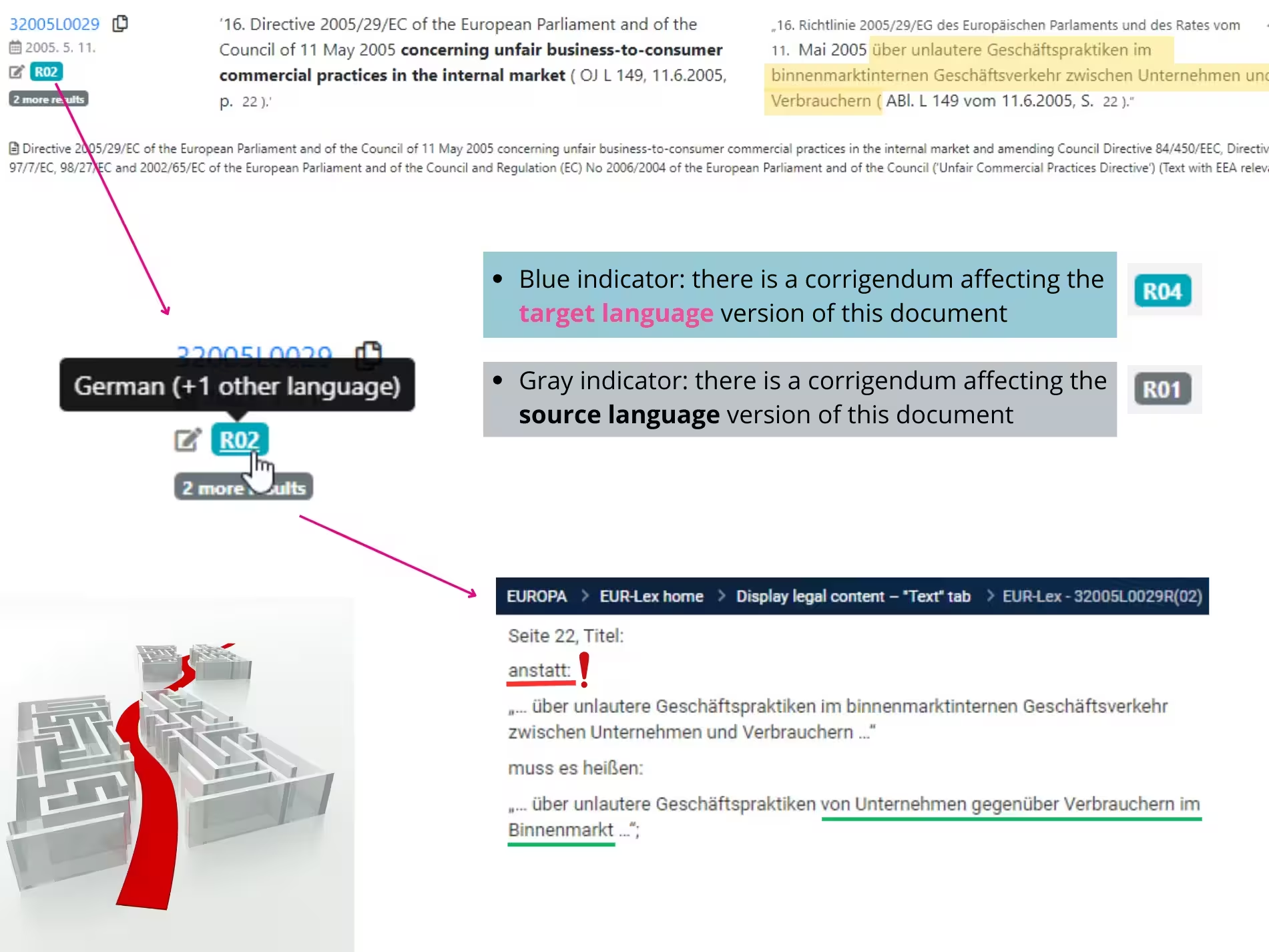
We conducted our research during the development of the corrigendum indicator feature in Juremy, and it reinforced our findings that it is essential to verify if the reference document has been subject to retroactive corrections in the relevant languages, before making a terminological choice or referring to case-law.
Juremy not only indicates the existence of the related corrigendum, but it also provides a hyperlink to the original source of the correcting instrument in EUR-Lex.
For more information read our other blog article about the corrigendum indicator.

